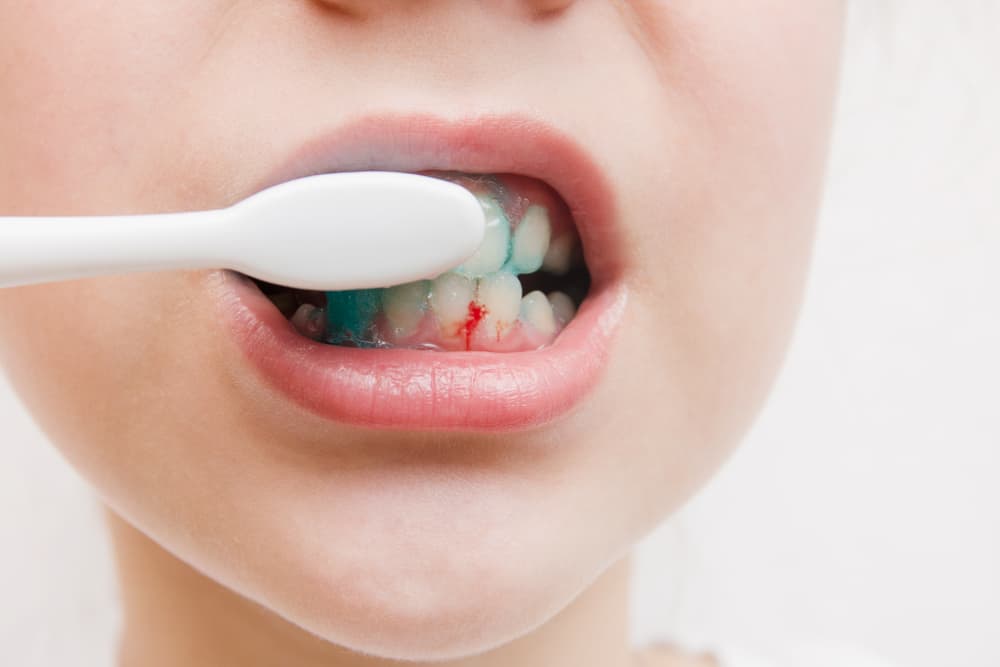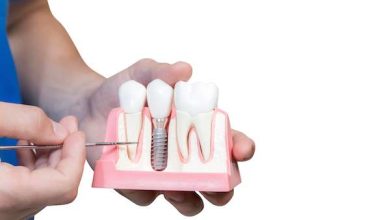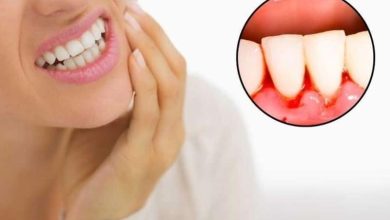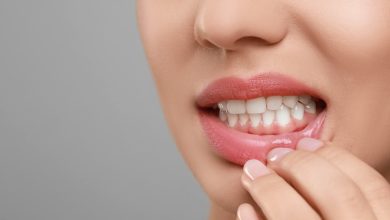Is It Normal for Gums to Bleed During Dental Cleaning?

Yes, it is normal for gums to bleed during dental cleaning due to the removal of plaque and tartar buildup. Bleeding gums indicate gum disease and should not be ignored, as it may lead to more serious oral health problems such as gingivitis or periodontitis.
Regular visits to the dentist and proper oral hygiene can help prevent gum disease and maintain healthy gums. Regular dental cleanings are essential for removing plaque and tartar buildup, reducing the risk of gum disease, and maintaining optimal oral health.
Understanding The Causes Of Bleeding Gums
Poor oral hygiene and plaque buildup can lead to bleeding gums. When teeth are not properly cleaned, bacteria in the mouth can form plaque, a sticky film that irritates the gums. Over time, if the plaque is not removed, it can harden into tartar, causing gum inflammation. This inflammation, known as gingivitis, is one of the early signs of gum disease.
Gum disease, or periodontitis, can also result in bleeding gums. This condition occurs when gingivitis is left untreated and progresses to a more severe stage. In addition to plaque and tartar buildup, gum disease can be caused by certain medications that affect blood clotting, making gums more prone to bleeding.
Hormonal changes during pregnancy can also contribute to gum bleeding. Increased hormone levels can make the gums more sensitive and reactive to plaque and bacteria, leading to inflammation and bleeding.
The Importance Of Regular Dental Cleanings
Regular dental cleanings play a crucial role in maintaining oral health. These cleanings help prevent plaque and tartar buildup, which can lead to various dental issues. One common concern during dental cleanings is bleeding gums. While it may be alarming to see your gums bleeding, it is essential to understand that some bleeding is normal, especially if you haven’t had a cleaning in a while.
During a dental cleaning, the dental hygienist uses specialized tools to remove plaque and tartar from your teeth and gumline. This process may cause slight irritation and result in minor bleeding. However, if the bleeding is excessive or continues for an extended period, it may indicate an underlying issue, such as gum disease.
By having regular dental cleanings, you can keep gum disease at bay. These cleanings allow the dental professional to detect potential dental issues early, including gum disease and cavities. Early detection is vital for effective treatment and preventing further complications.
Ultimately, regular dental cleanings contribute to maintaining overall oral health. They help keep your teeth and gums clean and healthy, ensuring a beautiful smile and preventing more significant dental problems down the line.
Establishing Good Oral Hygiene Habits
Establishing good oral hygiene habits is essential in maintaining healthy gums. Brushing your teeth twice a day with a soft-bristled toothbrush is the foundation of oral care. This helps to remove plaque buildup and prevent gum disease. Flossing daily is also crucial as it effectively cleans between the teeth and along the gumline, reaching areas that a toothbrush can’t. It helps to remove plaque and food particles that may cause gum irritation and bleeding. Using an antibacterial mouthwash can further support gum health by eliminating bacteria in the mouth. Another important habit to incorporate is tongue cleaning, as this can help to remove bacteria that may contribute to gum bleeding. By following these practices, you can achieve healthy gums and minimize the occurrence of bleeding during dental cleanings.
Seeking Professional Dental Care
Scheduling regular dental cleanings and check-ups is essential for maintaining optimal oral health. During these appointments, a dental hygienist will carefully clean your teeth, removing plaque and tartar buildup that cannot be removed through regular brushing and flossing. However, it is not uncommon for gums to bleed during dental cleaning, especially if you have gum disease or gingivitis. This bleeding is often a sign of inflammation and infection in the gums.
It is important to communicate with your dentist about any dental concerns you may have, including bleeding gums. They can assess the overall health of your gums and provide appropriate treatment options if necessary. If you are experiencing frequent or excessive gum bleeding during dental cleanings, it may be indicative of underlying gum issues that require additional treatment. Your dentist can advise you on the best course of action to address these concerns, which may include scaling and root planing, antibiotics, or other procedures.
Recognizing Signs Of Gum Disease
During dental cleaning, it is not uncommon for gums to bleed. This can be a sign of gum disease, which should not be ignored. Recognizing the signs of gum disease is crucial for early detection and treatment.
One of the signs is red and swollen gums. If your gums appear inflamed and feel tender to the touch, it could be a sign of gum disease. Another indicator is persistent bad breath. If you have consistent bad breath that persists even after brushing and flossing, it may be due to an underlying gum infection.
Additionally, a receding gumline is another symptom of gum disease. If you notice that your gums are pulling away from your teeth, revealing more of the tooth’s root, it could be a sign of gum disease. Lastly, loose teeth or changes in bite can also be a result of gum disease. If your teeth feel loose or if your bite doesn’t feel the same, it’s essential to consult with a dentist.
In conclusion, if you notice any of these signs, it’s important to seek professional dental care. Early detection and treatment of gum disease can help prevent further complications and maintain good oral health.

Credit: www.pickettfamilydental.com
Consulting With A Dentist Or Periodontist
When you experience bleeding gums during a dental cleaning, it may be worth consulting with a dentist or periodontist to have a professional evaluation and diagnosis. Bleeding gums can be a sign of gum disease, which can range from mild gingivitis to more severe periodontitis. A dental professional can determine the underlying cause of your bleeding gums and recommend potential treatment options based on their diagnosis.
It is important to understand the importance of early intervention when it comes to gum disease. If left untreated, gum disease can lead to more serious issues such as tooth loss and bone damage. With timely treatment and proper oral hygiene practices, it is possible to prevent further damage and maintain optimal dental health.
Frequently Asked Questions On Is It Normal For Gums To Bleed During Dental Cleaning?
Do Healthy Gums Bleed During Dental Cleaning?
Healthy gums should not bleed during dental cleaning. Bleeding gums may indicate gum disease or inflammation and should be addressed by a dental professional. Regular dental visits and proper oral hygiene can help maintain healthy gums and prevent bleeding during cleanings.
Why Do My Gums Bleed When I Clean My Teeth?
When you clean your teeth, your gums may bleed due to gum disease or improper brushing technique. Plaque and bacteria buildup can irritate the gums, leading to inflammation. Regular dental check-ups and improving oral hygiene can help reduce bleeding gums.
Is It Normal To Bleed When Cleaning Teeth?
Bleeding when cleaning teeth is not normal. It could be a sign of gum disease or brushing too hard. See a dentist if bleeding persists.
Is It Bad If Your Gums Bleed At The Dentist?
It is not uncommon for gums to bleed during a dental procedure. This can occur due to inflammation or irritation from the tools used. However, it is important to let your dentist know so they can check for any underlying issues.
Conclusion
Overall, experiencing minor bleeding during dental cleanings is quite common and typically not a cause for concern. It is often a result of inflamed gums due to plaque buildup or gingivitis. However, consistent or excessive bleeding may indicate a more serious issue, such as periodontal disease, and should be addressed by a dental professional.
Regular dental cleanings and maintaining good oral hygiene habits are essential for preventing gum disease and maintaining a healthy smile.






One Comment